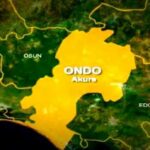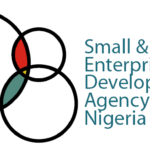Those with an eye on the future, would bellyache about the Trillions (in Naira), being expended today on an elusive security, depriving our children of good education, or healthcare, leading to the despondency in the system, and thereby re-creating more insecurity in the land! A vicious, albeit expanding, circle of insecurity is the current reality. This focus of elections on the economy was popularized in 1992 during the first Clinton campaigns.
In 1992, the American economy was in a slump. The first Gulf War had just been initiated with boots on ground in Iraq. The economy went into a recession (meaning GDP dropped – negative growth), the roaring 80s had just ‘roared’ past, the prosperity had departed, stock and bond markets had taken a hit. The American dream had looked like a nightmare. The Republicans seemed to have run out of ideas about what to do apart from flexing military muscle around the world. Clinton rode in with fresh ideas about the economy, including lessening the tax burden on the working class, and bingo! He won the election and served two terms, the first Democrat to so do, since FD Roosevelt in the 1940s.
The Nigerian economy, is by a far sight, in worse shape than the American economy of the early 1990s. In fact, our economy can never be compared with the American economy in terms of robustness, history, finesse, depth, breadth and pedigree. America has what people will call ‘old money’. No matter how much Nigeria sells its crude oil, our riches are still transient. The USA has invested massively, more than any other economy in the world, in human capital, in institutions, in strategy. Even China is merely trying to play catch up. I have other issues with their politics though.
The youth of Nigeria, who make up the majority of voters, should always have this fact in mind. It’s about the economy. Everything links back to how anyone who proposes to lead Nigeria, and/or its constituent states, hopes to give and keep adding dignity to the Nigerian people. Development is dignity. And dignity, is very much about to the ability to live a fairly good, independent life. It is about jobs. It is about living wages. It is about peace of mind. It is about healthcare. It is about education for our children. It is about good water and affordable electricity. It is about systems and institutions that work. It is about how more people can make visible progress in their lives, live longer, more fulfilled lives. It is about the economy. Yes, dignity is about the economy. For, even as the holy books say, money – or whatever is the means of exchange – answers a whole lot of questions. A state of perpetual, painful need, is not desirable to anyone in this world. That state (of perpetual and painful need), is where most Nigerians find themselves.
This is why it is important to consider where we are as Nigerians today, in terms of the economy. Few Nigerians, who are really privileged, would say the economy is booming and growing. More (like me) would even argue that this is where the opportunities are and we should seize those opportunities. But the reality is that the cash that flows in this economy, is flowing increasingly among a certain, shrinking concentric circle (as compared with an expanding circle of want), leaving the majority absolutely helpless, gazing at the skies, hugging religion and superstition, waiting for Godot. Sometimes, people get desperate and try to join the Joneses through any fraudulent means. Some in government, having seen this pattern over time, proceed to “dam” all the cash that should flow from their desks into the accounts of contractors and service providers, diverting such, through many ‘irrigation’ schemes, into ventures that will benefit them. Whoever is nearest to the money in Nigeria today, simple gets the most benefit from it. Simple.
Whereas those who are in positions of leadership in today’s government would usually defer to the rosy picture, naturally, even they have been singing dirges of woe about the Nigerian economy in recent times.
One frightening example is the alarm raised recently by the Coordinating Minister for the Economy, DrMrsNgoziOkonjo-Iwealla, when she lamented the amounts of money that the Federal Government has been dispensing to the states. We should have known, but some of us were shocked to the marrow to learn that many Nigerian states earn, merely from Federal Government Allocations (called FAAC), more money in Dollar terms, than the entire budgets of our neighboring countries, some of which hosts thousands of our children as students in tertiary institutions, some of which have better public health facilities than we could boast of. The CME’s speech, given at the last convocation ceremony of Babcock University, detailed how a state like AkwaIbom, earns from the FAAC alone, without considering its own efforts at generating revenue, 4 times the budget of Liberia, while it has only a tenththe population of Liberia and a fourteenth of its landmass.
A state like River State, earns perhaps 80% of what AkwaIbom earns, though slightly larger in population and landmass. Even smaller states in Nigeria, earn amounts that are comparable to the entire budgets of most West African countries. About eight states in Nigeria earn from the FAAC alone, an amount that is equal the entire budget of the Republic of Ghana, where thousands of Nigerians now run to for vacation, conferences, jobs, education, health,tourism, and some sanity.
The question to ask is, where does money disappear to in Nigeria? Does money have less value in Nigeria? How come we still speak of 70% poverty rate, 26% unemployment, 75% youth unemployment, homelessness, disease, filth, and despondency in spite of these amounts? Are those missing monies to be found in the maddening pace with which money is transferred illicitly out of the country, in pursuit of all sorts of assets in all sorts of countries abroad, or in the many ghost cities in our capital cities – rows upon rows of uninhabited mansions housing geckos and lizards? Many Nigerians would easily answer that, for it is obvious; the monies are simply privatized – by a collaboration of government appointees, politicians and their civilian cohorts (the few who can get access to where the koko is being shared). One is not being jealous of their ‘good fortune’, but what most other countries on the path of progress do, is to ensure enough is spent, consistently and over a long period of time, on the provision of public goods – education, health, infrastructure – such that the poor may not have money but have dignity, and will thus allow the super-rich to enjoy their money. This is what is called ‘elite consensus’. That subject, no one is talking about in Nigeria. No one!
 Join Daily Trust WhatsApp Community For Quick Access To News and Happenings Around You.
Join Daily Trust WhatsApp Community For Quick Access To News and Happenings Around You.


